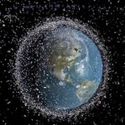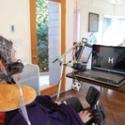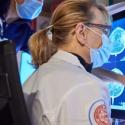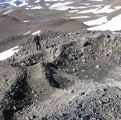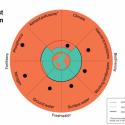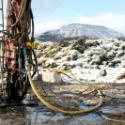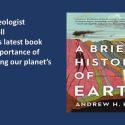Science Is Essential
Science touches so many aspects of modern life that it's hard to keep up. Through our programs and this website, Science for the Public provides up-to-date information about scientific innovations, discoveries, and issues that are shaping modern knowledge.
Coming Events
No events are scheduled for June or July
Recent Events
Space Debris Alert!: The Potential Impact on the Ozone Layer and Earth’s Climate
05/27/25 (rescheduled from April) Thousands of satellites orbit Earth. At the end of their missions, they drop into and burn up in the stratosphere, depositing ash that contains oxides and pollutants that are affecting both the ozone layer and the planet's climate. Atmospheric scientists are working to analyze the aerosols and their worrisome impact. Daniel Cziczo
The Brain-Computer-Interface Paradox
05-20-25 For individuals paralyzed by injury, stroke or ALS, brain-computer-interface (BCI) devices can enable movement and even speech. However, there are concerns: specifically, that such technology could be developed for mind control. Lukas Meier
Cancer Research: How It Works and Why It's Crucial Today
04/08/25 Numerous types of cancer are increasing today and scientists are trying to identify the causes. That's why cancer research is one of the most important concerns of modern science. We learn how the research is done and also why federal funding for this work is essential. Gerald Denis
Glacial Moraines
Evidence for ancient glaciers and their rocky deposits conflicted with the 18th century's Biblical perspective
Resistance to New Ideas
Many of the most important advances in scientific understanding were initially rejected or ignored.
Life: Life beyond Earth
The basic chemical elements of life on Earth are the most abundant elements in the universe...Are the conditions right elsewhere?
Featured Items
Addressing the Threat to Earth System Boundaries
09/12/23 The breaching of most of the Earth system boundaries (ESBs) is destroying the planet and the crisis must be addressed immediately. Solutions must include justice for those who suffer displacement, health and economic impacts of the crisis. Diana Liverman
Analyzing Clouds and Climate Change
09/26/23 Clouds protect the planet and play an essential role in climate dynamics. How will the rapidly heating planet affect that relationship? Daniel Cziczo
Carbon Capture and Storage Will Not Reduce Global Warming
02/09/24 GBH Forum Network webinar (noon ET) The extreme level of atmospheric CO2 is well beyond a “capture and storage/sequestration” solution, yet the hype persists that some clever extraction innovation will resolve the problem. Charles Harvey
Heads Up! Surprising Stats
Science for the Public is committed to improving public knowledge of science and public appreciation for the contributions of science to social progress.

Galileo and the Science Deniers
09/14/21 Today scientific information is available to all, yet misinformation and denialism abound. Galileo's famous struggle for truth centuries ago is highly relevant today. Mario Livio
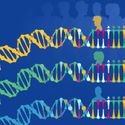
The Human Genome Project
09/20/11 The challenge for genomic studies today is how to manage the vast collection of data. John Quackenbush
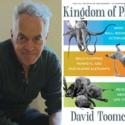
Kingdom of Play
05/06/24 WGBH Forum Network webinar. All sorts of animals engage in imaginative types of play. Is this behavior just creature-entertainment, or is it important for development and bonding? David Toomey

An Update on Those "Forever" Chemicals
10-17-23 WGBH Forum Network webinar
PFAS, a group of chemicals added to many everyday products, became a concern years ago among medical researchers, but governmental agencies were slow to impose regulations. Philippe Grandjean
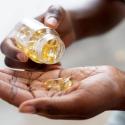
How Effective Are Vitamin D Supplements?
04/23/24 Promoted for years as a means to strengthen bones and lower risk of multiple diseases, improved studies by JoAnn Manson and others revealed that Vitamin D supplements were not very effective at all. Natural sources, including sunshine, are much better. It’s important to understand why. JoAnn Manson
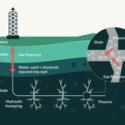
Fracking: The Facts and Issues
11/12/13 A panel of experts presents the known scientific, health and environmental facts about fracking.
Phartiyal_Pallavi, Aaron Bernstein, William Moomaw, Andrew Rosenberg
Today's Featured Contributors
Featured Author

Richard Primack, Ph.D.
Professor Primack's innovative textbooks incorporate information relevant to specific regions where the texts are used
Featured Guest

Tanya Smith, PhD
An expert on reconstructing individual histories through fossil teeth
As a world society, it seems clear that we have arrived at a point in our history when there must be a major increase in the capability of ordinary people to cope with the scientific and technological culture that is shaping their lives and the lives of their children.
—Leon Lederman, Nobel Laureate in physics

